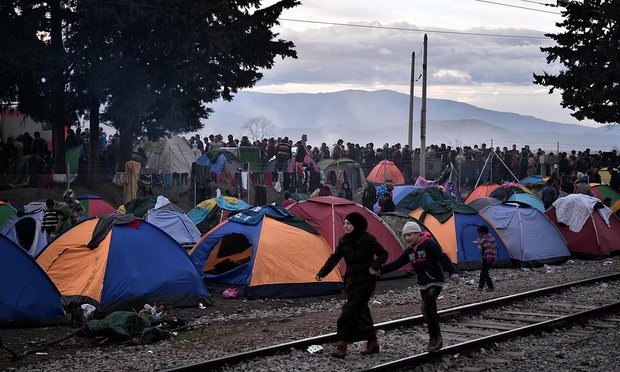051 8439995, 042 35911332

Greece’s Austrian community has issued a withering denunciation of Vienna’s strongarm approach to the refugee crisis, describing it as “callous” and deeply embarrassing for the country’s citizens abroad.
In an open letter to the government, an English-language version of which has been passed to the Observer, prominent Austrians long connected with Greece appeal to their nation’s coalition government to assume a more responsible role in handling Europe’s refugee crisis.
“The Austrian government needs to understand that individual, national approaches fail to produce results,” the signatories, including academics, archaeologists, teachers and retirees, write. “Solitary advances contradict the basic tenets of the European programme, which is meant to serve as the foundation for a new generation.”
In an extraordinary about-turn that has seen it break ranks with Berlin, Vienna has led a charge to reintroduce border controls that has effectively sealed the Balkan migration route. By Saturday, closure of the corridor had trapped around 32,000 migrants and refugees in Greece, with more than a third of them stranded at the Macedonian border, where a state of emergency was declared.
The situation arose after Austria – imposing a cap on the number of refugees it would accept – held a mini-summit of eastern European and Balkan states in which it was agreed that restrictions would be tightened to stem immigration.
“The callous reaction of the Austrian government, one of the richest countries in the world, puts us to shame,” the letter says. “We are deeply embarrassed by the confused, shortsighted ‘vision’ that the Austrian government hysterically chose to impose on the western Balkans.”
Greece, which was excluded from the mini-summit, should also have been able to attend “to make her voice heard and present the facts on the ground”, the letter says.
The expatriates, many of whom have lived in Greece for decades and in less heated times are the first to criticise their adopted homeland’s failings, accuse Vienna of pursuing neo-nationalistic policies that have “no place” in the Europe of the 21st century. While the burden of managing the crisis has fallen to impoverished, debt-ridden Greece, they say, Austria has distorted the truth, misrepresenting the number of refugees it has taken in since men, women and children fleeing conflict in the Middle East and poverty elsewhere began to pour into Europe.
“Austrian politicians have claimed that our country has accepted more refugees than most others. But a glance at the facts from Europe’s south proves this statement to be fatally wrong, misrepresenting the data.”
The Austrian People’s party (ÖVP), the junior partner in Vienna’s Social Democrat-led coalition, has long been infuriated by Athens’s policy of “waving through” migrants and refugees. Senior government figures including foreign minister Sebastian Kurz and interior minister Johanna Mikl-Leitner, both members of the conservative ÖVP, have argued for the need to build “a European fortress” and said that those who arrive in Greece should not be allowed to continue their journey north.
But in the letter, the expatriates argue that, unlike landlocked Austria, Greece has the longest shoreline in Europe – a vast maritime border that is impossible to manage. “If Austria wishes to pursue unilaterally a ‘complete barrage against refugees’, our little country will be remembered as the trigger of a humanitarian catastrophe,” they write.
“The government of Austria justifies its reaction by admitting to being incapable of organising and administering a larger influx of refugees … While it is easy for a landlocked nation like Austria to barrage herself behind walls, such a policy of avoidance is impossible for a country comprising over 2,000 islands and with a coastline of almost 14,000km.”
Greece, they say, has not only been assigned the role of henchman – overseeing Europe’s “barbed wire politics” – but is being asked to do so at a time when, after six years of navigating its worst economic crisis in modern times, it is on its knees.
“Now the Greek state is supposed to master a situation that would far surpass what Austrian authorities are able to shoulder,” the letter continues. “We appeal to the Austrian government to act reasonably, use common sense judgment and apply the principles of human rights …
“Short-sighted neo-nationalism should have no place in the Europe of the 21st century. This is the least we owe to our historic past.”
